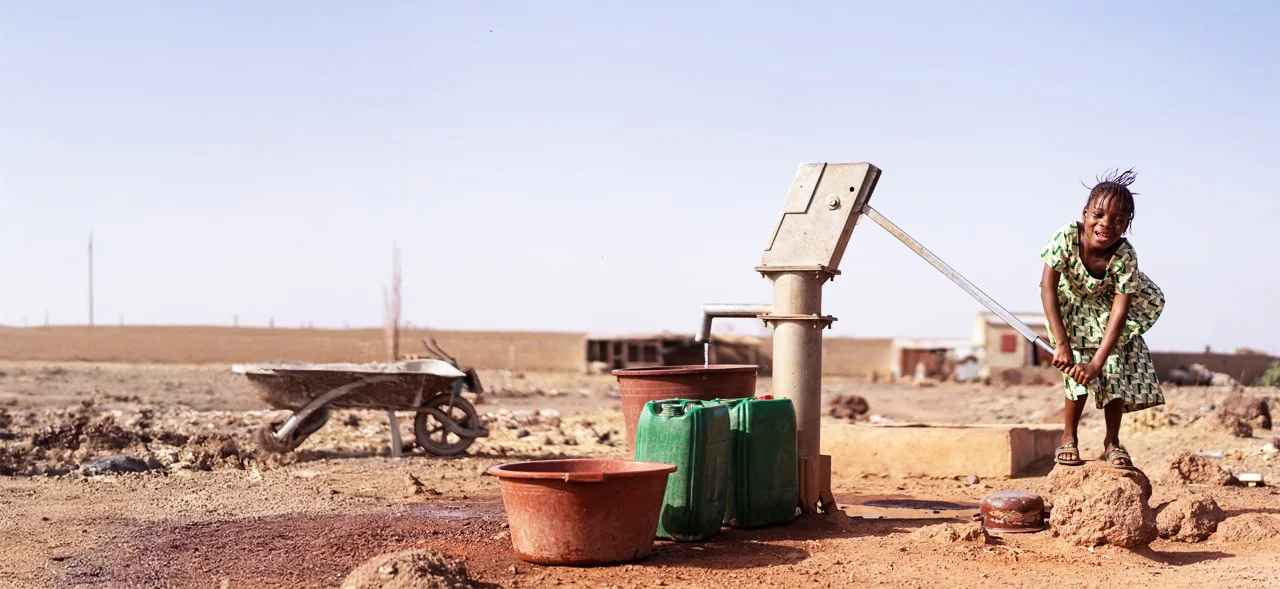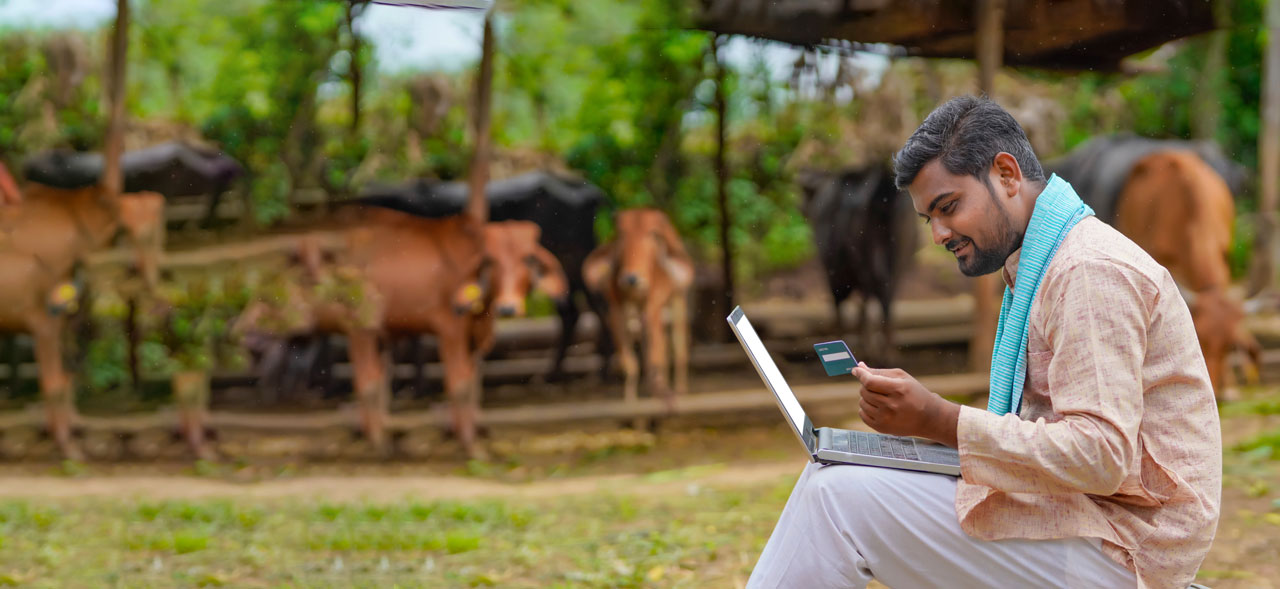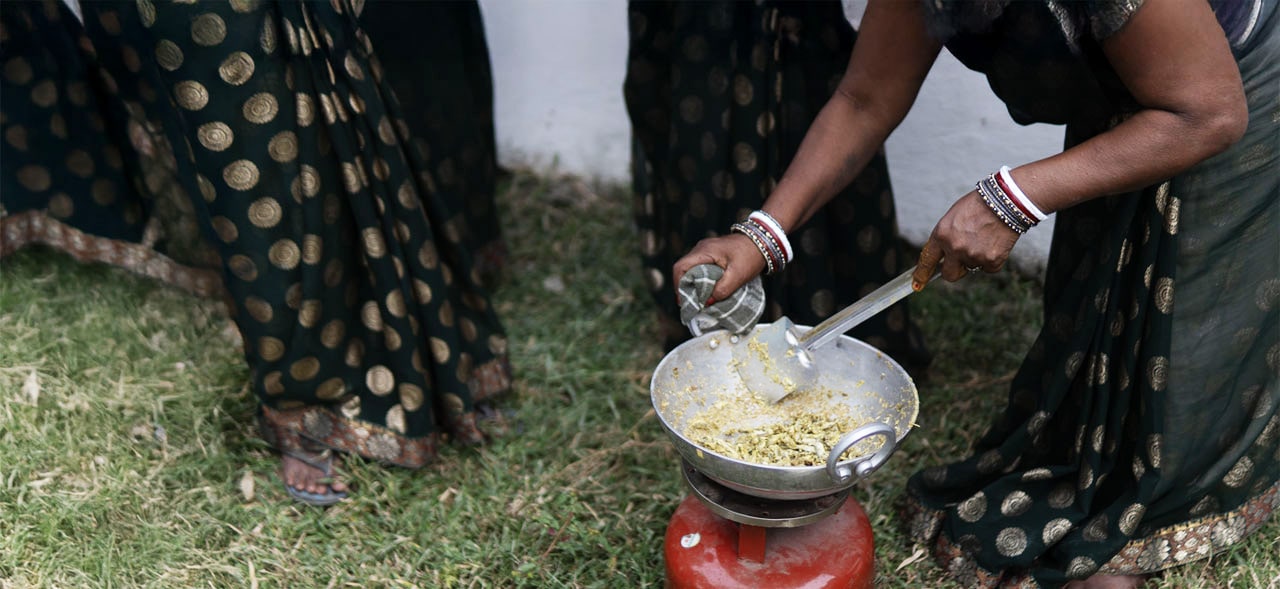
Smallholder farmers across Africa are increasingly becoming more vulnerable to climate-related shocks that threaten their livelihoods and food security. While weather-based index insurance offers a promising solution to help farmers manage weather-induced losses, adoption remains critically low. Many farmers do not fully understand how these products work, which leads to confusion and mistrust, especially during the claim process. Poor customer experiences, limited awareness, and ineffective communication further suppress demand. At the same time, insurance providers struggle to offer compelling value propositions and reach rural clients effectively, which leaves a significant protection gap in farming communities.
To address these challenges and unlock the potential of index insurance, MSC partnered with ACRE Africa to identify and tackle behavioral and structural barriers. We conducted a multicountry diagnosis with the use of a behavioral research to uncover customer pain points and institutional constraints. Based on these insights, we redesigned the customer journey, refined product features, and developed tailored training modules for field agents. We also introduced a village-based product champion model and supported digital outreach strategies to strengthen last-mile engagement.
These improvements contributed to the successful scale-up of weather-based index insurance, which reached approximately 200,000 farmers across ACRE Africa’s network. The initiative helped restore trust in insurance, improve access to climate risk protection, and build resilience among smallholder farmers across the region.
ACRE Africa commissioned this project.

Gig workers in Kenya lacked the formal protections offered in traditional employment. This exposed them to significant risks, such as income loss, workplace injuries, and medical emergencies.
To address this gap, the Mastercard Foundation’s Youth Livelihoods in Digital Financial Services (YLDFS) program supported a pilot initiative to design and test inclusive insurance solutions for gig workers in Kenya. The project sought to provide meaningful risk protection and enhance financial resilience for informal workers through innovative, user-centric insurance products.
MSC partnered with Lynk, a digital gig platform, and Britam Kenya to cocreate and pilot a personal accident and work injury insurance product tailored to gig workers’ needs. MSC conducted behavioral research to understand gig workers’ risk perceptions and financial behavior, then used those insights to guide product design. We also facilitated strategic partnerships, supported the pilot rollout, and developed digital financial education modules to promote product uptake and build trust.
The pilot insured more than 1,000 gig workers daily, which marked a major step forward in the expansion of financial safety nets for informal workers. The initiative showed the viability of gig worker insurance and laid the foundation for broader adoption of inclusive insurance solutions for Kenya’s growing digital workforce.
The Mastercard Foundation (YLDFS program) commissioned the project.

Smallholder farmers in Tanzania face increasing threats from climate variability and agricultural risks, yet remain largely excluded from formal risk-transfer mechanisms. With limited access to insurance, many rely on informal coping strategies that offer little protection in times of crisis. Although interest in agricultural microinsurance is growing, uptake remains low due to poor awareness, affordability challenges, and weak delivery infrastructure. These persistent barriers continue to undermine the financial resilience of rural farming communities and highlight the urgent need to explore scalable, inclusive insurance models tailored to their needs.
MSC explored the potential of microinsurance to support Tanzania’s smallholder farmers, particularly as a tool to manage climate and agricultural risks. We conducted a detailed feasibility assessment, which started with a review of existing insurance products and the policy landscape, followed by primary research with farmers, insurers, and agricultural stakeholders. The study evaluated insurance needs, affordability levels, awareness, and delivery barriers. MSC proposed customer-aligned product concepts that accounted for behavioral factors and local risk patterns.
The research also identified opportunities for viable, scalable microinsurance models. It laid the groundwork to pilot climate-smart insurance products and build a stronger business case for insurers to serve rural markets. This would enable AGRA to align its programs with practical, evidence-based risk mitigation solutions. A workshop was held in Dar es Salaam with relevant stakeholders for comments and validation of the findings. A final report and recommendations were delivered to guide the development and deployment of an appropriate and affordable micro-insurance product.
AGRA funded the project.

Despite the presence of numerous centrally sponsored schemes in health, nutrition, sanitation, education, and livelihood, rural blocks, such as Sewapuri in Uttar Pradesh, struggled with fragmented service delivery, low convergence among departments, and limited community outreach. These gaps led to inefficient resource utilization, poor awareness of entitlements, and limited access to quality services, undermining efforts to improve basic health and welfare outcomes in the region. Recognizing this, NITI Aayog and the Ministry of Rural Development identified the Sewapuri block for piloting a gram panchayat-level saturation model intended to demonstrate how coordinated governance and community-level convergence could address these challenges sustainably.
MSC was commissioned to support the Varanasi district administration in operationalizing the Sewapuri Vikas Abhiyan (SeVA). This involved:
- Establishing a full-time program support unit (PSU) with development professionals to drive implementation and convergence.
- Designing strategic sectoral plans for health, education, nutrition, sanitation, and financial inclusion with detailed action frameworks.
- Developing a monitoring, evaluation, and learning (MEL) framework to regularly track and report on 138 defined KPIs.
- Providing capacity-building and advisory support to government departments and ecosystem partners.
- Facilitating community outreach and behavior change communication, including training 2,000 community volunteers.
MSC collaborated with NITI Aayog’s ecosystem partners, which include the Piramal Foundation, UNICEF, and the Gates Foundation’s partners, such as JHPIEGO, IHAT, PCI, ID Insight, and WaterAid. The integrated efforts led to:
- Saturation of development interventions across all 87gram panchayats, reaching over 240,000 residents.
- Achievement of 100% of targeted KPIs. A critical achievement was screening 95% of the eligible population (aged 30 and above) for diabetes and hypertension at health and wellness centers, with follow-ups at public health centers (PHCs).
- Enhanced service delivery through better coordination across 13 central and state ministries.
- A replicable model of convergence that contributed to the scale-up of the initiative under the Aspirational Blocks Programme across 500 blocks in India.
The project was commissioned by the Gates Foundation (formerly BMGF) in collaboration with NITI Aayog, with MSC serving as a technical and strategic partner to the Varanasi district administration.

The Pradhan Mantri Jan Arogya Yojana (PM-JAY) is the world’s largest health insurance program, which provides USD 6,723 (INR 500,000) per family annually for secondary and tertiary care hospitalization. Government and private hospitals are empaneled under the PM-JAY to offer medical treatments, procedures, and surgeries. However, several systemic and operational bottlenecks led to dissatisfaction among empaneled health care providers (EHCPs), which led them to lose confidence in the program and opt out of the program.
MSC provided technical assistance to the National Health Authority (NHA), the central body responsible for the PM-JAY’s governance. We conducted a study across the states of Bihar, Haryana, and Madhya Pradesh to assess the challenges healthcare providers face in the delivery of services under this program. The study mapped the payment process to hospitals and identified key bottlenecks that affected payment timelines. MSC developed recommendations to optimize the claims process, enhance technology platforms, and strengthen human resource capacity while ensuring alignment with government policies.
A key focus was digital transformation and resource optimization to streamline claims processing for EHCPs and governance agencies. Additionally, MSC proposed digital incentives for the EHCP health workforce to improve engagement.
The study provided practical insights to improve efficiency, transparency, and trust in the PM-JAY’s implementation. MSC’s work addressed payment delays and administrative inefficiencies to restore confidence among healthcare providers, ensure their continued participation in the PM-JAY, and strengthen India’s healthcare delivery system.
The Gates Foundation commissioned the project.

The Government of Bihar intended to increase routine consumption of aquatic food among pregnant and lactating women, adolescent girls, and children under five years. The efforts sought to improve nutrition outcomes, especially around women and children, through dietary habits, cultural practices, and changing perceptions that hinder fish consumption.
MSC has been actively collaborating with women’s self-help groups (SHGs) in Bihar. Therefore, as an extension, the government sought MSC’s technical support to elevate nutritional literacy and build awareness of the benefits of fish consumption among groups involved in fish farming or allied activities. We executed targeted social and behavior change communication (SBCC) initiatives. We led awareness campaigns with women and children in Bihar, which emphasized the safe consumption of fish, particularly for children under five years. This involved a multifaceted approach that included mass media interventions and localized cooking demonstrations to reinforce the importance of incorporating fish into daily diets for improved health outcomes.
Our SBCC efforts enhanced the nutritional status of the target audience. It promoted regular consumption of nutrient-rich aquatic food, addressed deficiencies, and improved overall health outcomes. This ensured long-term health benefits for the community.





